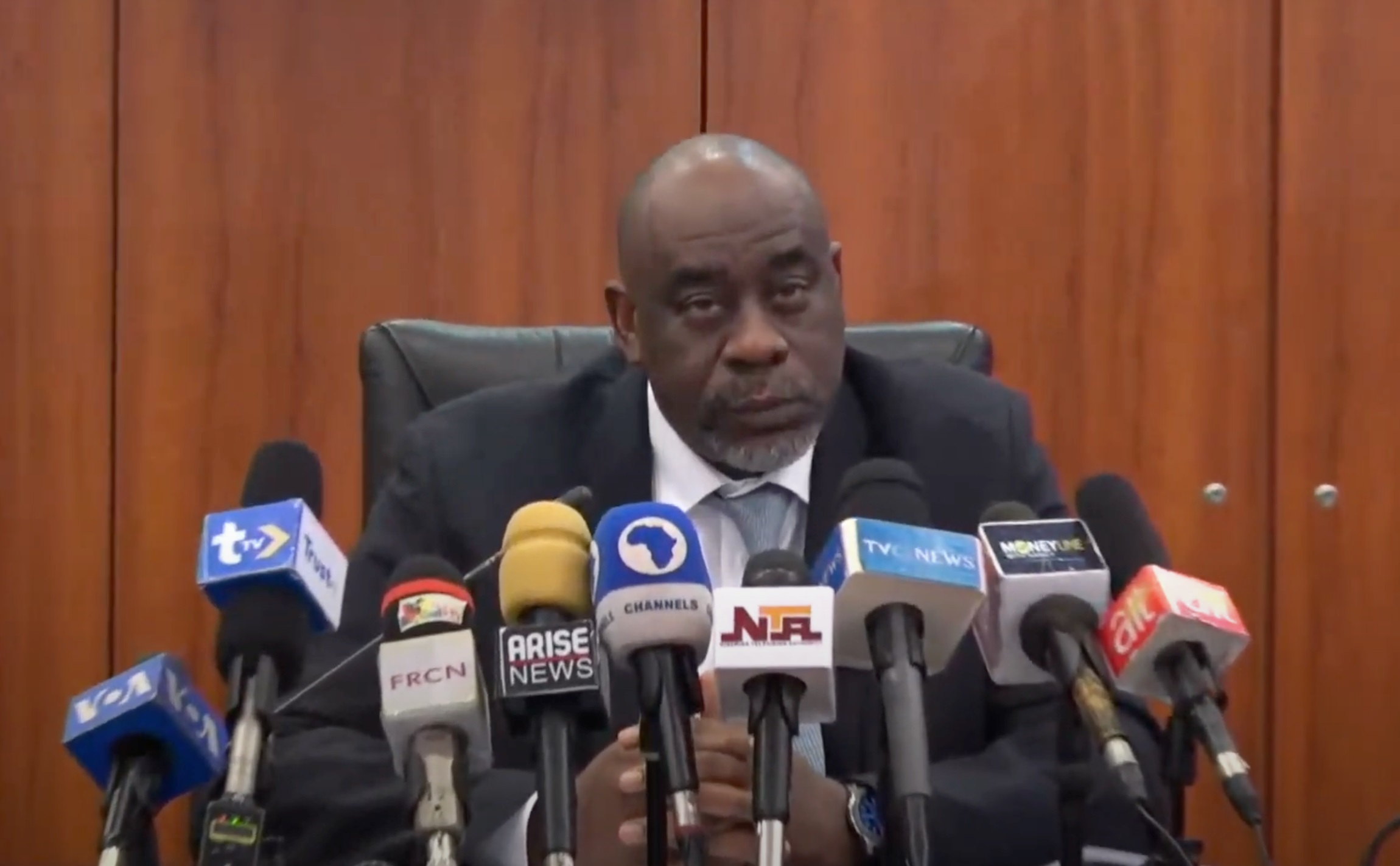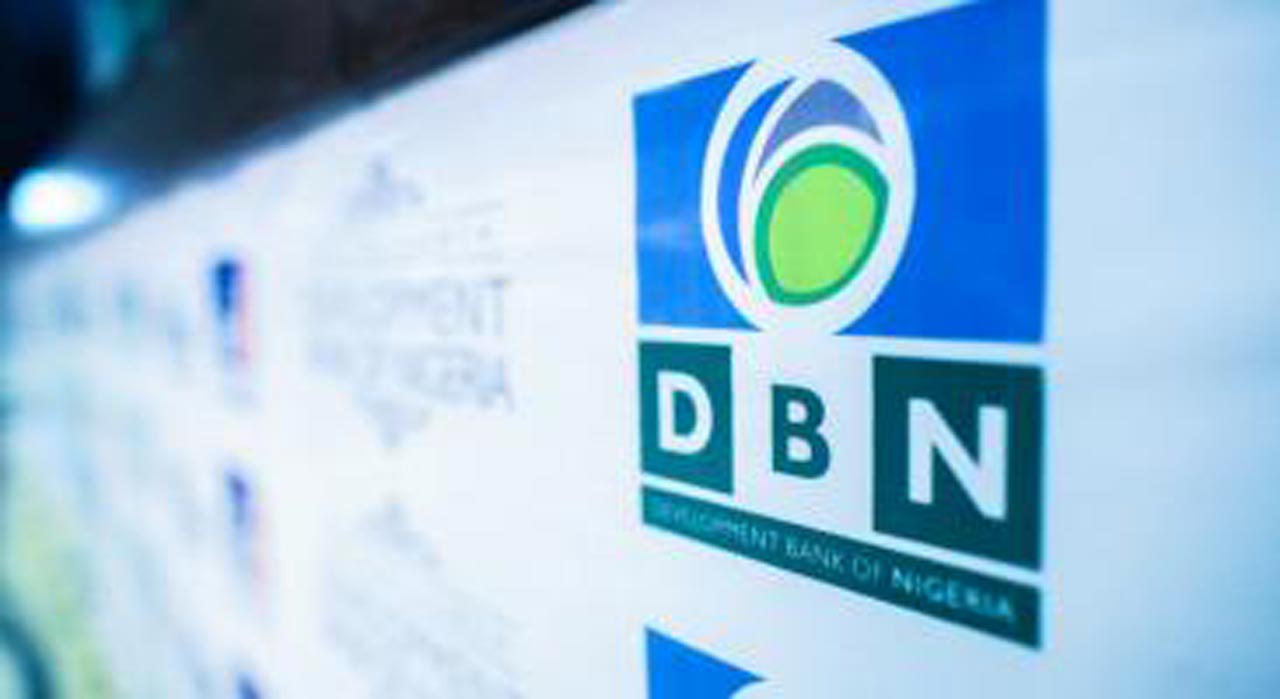Banking
CBN to Resume LDR Policy, Unfreezes Accounts of AbokiFX, Others

By Adedapo Adesanya
The Central Bank of Nigeria (CBN) ordered banks to vacate a Post-No-Debit (PND) restriction earlier imposed on the bank accounts of 440 individuals and companies.
The central bank has also informed commercial banks in the country that it would resume the enforcement of the Loan-to-Deposit Ratio (LDR) policy effective July 31, 2023.
A PND is one instrument through which the CBN gives powers to stop customers from operating their bank accounts with the permission of the courts.
The central bank conveyed the vacation of restriction in a circular dated July 25, 2023, which was signed by Mr A.M. Barau on behalf of the CBN Director, Banking Supervision Department, and addressed to all banks.
The correspondence read, “You are hereby directed to vacate the Post-No-Debit restriction placed on the accounts of the under-listed bank customers at our instance.”
The apex bank further mandated the banks to inform the concerned customers of the vacation accordingly.
Some of the affected accounts included Fortune-K Resources and Investment Nigeria Limited, Voomos Limited, BoxII Limited, OP Amber, KIIPay Limited, Blake Excellence Resort, and Vanu Nigeria Limited.
Others are Bakori Mega Services, Ashambrakh General Enterprise, Namuduka Ventures Limited, Crosslinks Capital and Investment Limited, IGP Global Synergy Limited, Davedan Mille Investment Limited and Urban Laundry, Advanced Multi-Links Services Limited, Spray Resources, Al-Ishaq Global Resources Limited, Himark Intertrades, Charblecom Concept Limited, Wudatage Global Resources, Whales Oil and Gas, Mosinox Oil and Gas and A.A. Gwad Ventures.
Those also listed included Treynor Soft Ventures, Fyrstrym Global Concepts Limited, Samarize Global Nigeria Limited, Zahraddeen Haruna Shahru, FirmCoin Resources and SIBT Acuracy, and CrossLinks Energy Limited, among others.
On the LDR policy, the apex bank said the move followed the January 7, 2020, directive, which required banks to maintain a minimum LDR of 65 per cent.
The CBN, in a letter addressed to the banks and signed by Mr Abu Shebe, on behalf of the CBN Director of Banking Supervision, further explained that the resumption of enforcement was in line with the objective of the policy and the need to moderate industry excess liquidity.
Consequently, the CBN warned that Deposit Money Banks (DMBs) with LDR below the minimum requirement as of the date and monthly thereafter would be liable to a Cash Reserve Requirement (CRR) surcharge of up to 50 per cent of the lending shortfall implied by the target LDR.
The bank added that the DMBs would be duly notified of their respective LDR position and basis of surcharges, if any.
On July on July 3, 2019, the central bank, in an effort to stimulate the economy, mandated banks to keep a minimum LDR – defined as a loan-to-funding ratio – of 60.0 per cent, which was later reviewed upward to 65.0 per cent on September 30, 2019, to encourage banks to increase consumer, mortgage, and corporate credits thereby stimulating aggregate demand, output growth, and employment.
The LDR is the total value of loan facilities issued divided by the aggregate value of deposits mobilized and has both liquidity and solvency implications in the short-medium and medium to long-term horizons.
According to the CBN, this underscores the need to measure the impact of LDR on banks’ liquidity to ensure the achievement of the mandate of the bank – to promote a sound financial system in the country – without compromising the health of domestic banks.
The justification for the LDR policy was also to encourage banks to enhance credit delivery to the real sector of the economy.
The apex bank, in the January 2020 letter to all banks, stated that it noticed a remarkable increase in the size of gross credit by the DMBs to customers.
Accordingly, the apex bank decided to retain the minimum 65 per cent LDR in the interim and directed the banks to maintain the level.
The CBN noted that the incentive, which assigned a weight of 150 per cent with respect to lending to SMEs, retail, mortgage, and consumer lending, will continue to apply, while failure to achieve the target shall continue to attract a levy of additional CRR of 50 per cent of the lending shortfall of the target LDR on or before March 30, 2020.
The banks were further advised to maintain strong risk management practices regarding their lending operations.
Banking
Access Bank Opens Branch in Malta to Strengthen Europe-Africa Trade Ties

By Modupe Gbadeyanka
To strengthen Europe-Africa trade ties, Access Bank has opened a new branch in Malta. It will focus on international trade finance, employing approximately 30 people in its initial phase, with plans for controlled expansion over time.
It was learned that this Maltese branch was established by Access Bank UK Limited, the subsidiary of Access Bank Plc, which is also the subsidiary of Access Holdings Plc, which is listed on the Nigerian Exchange (NGX) Limited.
Access Bank Malta Limited commenced operations after obtaining a banking licence from the European Central Bank (ECB) and the Malta Financial Services Authority (MFSA).
Access Bank said the licence marks a transformative milestone in bolstering Europe-Africa trade flows.
Malta, a renowned international financial centre, and a gateway between the two continents, is strategically positioned to play a pivotal role in advancing commerce and fostering economic partnerships.
This strategic expansion into Malta enables The Access Bank UK Limited to leverage growing trade opportunities between Europe and Africa.
It underscores the organisation’s commitment to driving global trade, financial integration, and supporting businesses across these regions.
“By establishing operations in Malta, we will gain a foothold in a market that bridges European and North African economies, moving us one step closer to our goal of becoming Africa’s Gateway to the World.
“It further enhances our bank’s capacity to support clients with innovative solutions tailored to cross-border trade and investment opportunities,” the chief executive of Access Bank, Mr Roosevelt Ogbonna, stated.
“Europe has emerged as Africa’s leading trading partner, driven by initiatives such as the Economic Partnership Agreements between the EU and African regions and the African Continental Free Trade Area (AfCFTA).
“With Europe-Africa economic relations entering a new phase, The Access Bank Malta Limited is ideally positioned to deepen trade and meet the financing and banking needs of our clients in these expanding markets,” the chief executive of Access Bank UK, Mr Jamie Simmonds, commented.
Also speaking, the chief executive of Access Bank Malta, Renald Theuma, said, “Malta is uniquely positioned as a bridge between Europe and Africa, making it an ideal location for our subsidiary. This move allows The Access Bank Malta Limited to engage more closely with customers in Europe and deliver tailored financial solutions that drive growth and connectivity across both continents.”
Banking
Goldman Sachs, IFC Partner Zenith Bank, Stanbic IBTC, Others to Empower Women Entrepreneurs

By Adedapo Adesanya
The International Finance Corporation (IFC) and Goldman Sachs have announced a new partnership with African banks, including Nigeria’s Zenith Bank and Stanbic IBTC Nigeria to support the Goldman Sachs 10,000 Women initiative, a joint programme launched in 2008 to provide access to capital and training for women entrepreneurs globally.
The two Nigerian banks are part of nine financial institutions from across Africa which have agreed to join the 10,000 Women initiative committing to leverage the business education and skills tools the programme provides to create more opportunities for women entrepreneurs across the continent by providing access to business education.
Others banks include Stanbic Bank Kenya, Ecobank Kenya, Ecobank Cote d’Ivoire, Equity Bank Group, Banco Millenium Atlantico – Angola, Baobab Group, and Orange Bank.
Speaking on this, Ms Charlotte Keenan, Managing Director at Goldman Sachs said – “10,000 Women has had a powerful impact to date, but we know that there are more women to reach and more potential to be realized.
“We are delighted to partner with IFC to supercharge the growth of women-owned businesses across Africa, and mainstream lending to female business leaders. We remain committed to supporting entrepreneurs with the access to education and capital that they need to scale.”
Since 2008, the 10,000 Women initiative has provided access to capital and business training to more than 200,000 women in 150 countries.
“This expanded initiative marks a significant step forward in creating equitable economic opportunities for women in Africa, enabling them to build stronger, more resilient businesses and to realize their entrepreneurial goals,” said Ms Nathalie Kouassi Akon, IFC’s Global Director for Gender and Economic Inclusion.
Goldman Sachs’ 10,000 Women initiative complements the Women Entrepreneurs Opportunity Facility (WEOF), launched in 2014 by Goldman Sachs and IFC as the first-of-its-kind global facility dedicated to expanding access to capital for women entrepreneurs in emerging markets.
Banking
Development Bank of Nigeria Wins Financial Inclusion Leadership Award

By Aduragbemi Omiyale
In recognition of its unwavering commitment to fostering access to financing for Nigerian micro, small and medium enterprises (MSMEs), Development Bank of Nigeria Plc has been rewarded with the Financial Inclusion Leadership Award at the Champions of Inclusion Nigeria Financial Inclusion Awards.
This was at the 2024 International Financial Inclusion Conference (IFIC) organised by the Central Bank of Nigeria (CBN) in collaboration with the World Bank and other stakeholders.
The chief executive of the lender, Mr Tony Okpanachi, said the recognition affirms the company’s efforts in expanding access to financial services for MSMEs in Nigeria.
“We are honoured to receive the Financial Inclusion Leadership Award, which is a testament to our bank’s commitment to expanding access to financial services for all Nigerians. This award recognises our efforts to bridge the financial inclusion gap, particularly for a priority sector like the MSMEs.
“Additionally, this award is a validation of our strategic focus on driving financial inclusion for small businesses, and we are proud to be at the forefront of this initiative that drives that. We will continue to innovate and expand our financial inclusion programmes, ensuring that more Nigerian small and startup businesses have access to services,” he stated.
On his part, the Chief Operating Officer of DBN, Mr Bonaventure Okhaimo, said the accolade demonstrates the firm’s dedication to driving financial inclusion and economic growth in Nigeria.
“This award acknowledges our Bank’s innovative approach to widening opportunities for MSMEs in Nigeria to grow and scale their businesses,” he said.
“This award will motivate us to continue pushing the boundaries of financial inclusion, exploring more innovative solutions and partnerships to expand our reach and impact.
“We are committed to ensuring that more small businesses and startup enterprises in Nigeria have access to financial services, this award will further inspire us to accelerate our efforts in this regard,” he stated.
-

 Feature/OPED5 years ago
Feature/OPED5 years agoDavos was Different this year
-
Travel/Tourism8 years ago
Lagos Seals Western Lodge Hotel In Ikorodu
-

 Showbiz2 years ago
Showbiz2 years agoEstranged Lover Releases Videos of Empress Njamah Bathing
-

 Banking6 years ago
Banking6 years agoSort Codes of GTBank Branches in Nigeria
-

 Economy2 years ago
Economy2 years agoSubsidy Removal: CNG at N130 Per Litre Cheaper Than Petrol—IPMAN
-

 Banking2 years ago
Banking2 years agoFirst Bank Announces Planned Downtime
-

 Sports2 years ago
Sports2 years agoHighest Paid Nigerian Footballer – How Much Do Nigerian Footballers Earn
-

 Technology4 years ago
Technology4 years agoHow To Link Your MTN, Airtel, Glo, 9mobile Lines to NIN











